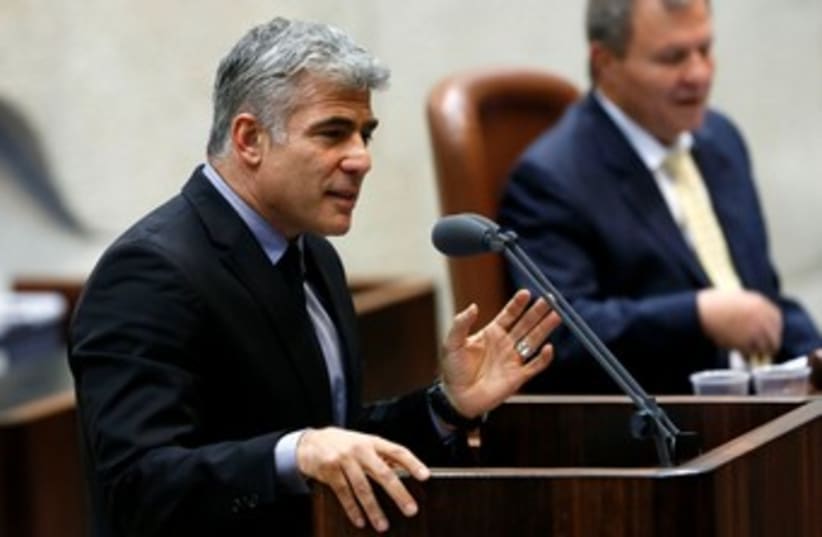The Knesset Finance Committee on Monday approved the budget, laying out NIS 395 billion and NIS 405.2b. of respective spending for each year and preparing the bill for its second and third readings in the Knesset.Committee chairman Nissan Slomiansky (Bayit Yehudi) commended the members for passing the budget despite deep ideological divides.“The budget, together with the Economic Arrangements Bill that was fixed in the finance committee, is good news for Israeli society, while ensuring compliance with fiscal targets,” he said. The committee voted eight in favor and four against the budget.Earlier Monday, the committee approved cuts of a half-billion shekels a year from the planned budget increases for both the Education Ministry and the Transportation Ministry. On Sunday, the cabinet approved a 4 percent reduction in ministry budgets, excluding education, transportation, defense and welfare. The committee also specified that the government could employ no more than 73,619 people in 2013 and 74,273 in 2014.The committee increased property tax to 6% from 5%, which was agreed to in principle in earlier discussions, and lowered the maximum tax exemptions on the lottery to NIS 50 million, which is expected to net the government some NIS 10m. a year.The committee found some extra cash in its “adjustment budget,” a pile of cash set aside in two-year budgets to fill unexpected spending gaps. Whereas the 2010-2011 budget allotted NIS 1.6b. for such spending, the committee only set aside NIS 100m. this time around. With only four months left in 2013, there were fewer chances of wild miscalculations.In earlier budget negotiations, Prime Minister Binyamin Netanyahu tapped the adjustment budget to rescue the Defense Ministry from spending cuts.Looking forward, the committee set the annual growth rate as the limit for how much budget spending could increase each year.In doing so, it hopes to bring the country’s NIS 700b. in debt, around 73% of its GDP, down to a sustainable 60% in the long-term.Niv Elis contributed to this report.
WATCH: Knesset discusses budget ahead of final vote
Chairman commends passing budget despite ideological divides.
